MercoPress. South Atlantic News Agency
Tag: Bank of England
-
Saturday, April 20th 2019 - 09:43 UTC
England and France top bankers warn of financial risks associated to climate change
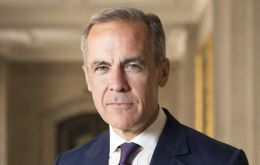
The heads of two major central banks have written a stark warning about the financial risks of climate change. Bank of England governor Mark Carney and France's François Villeroy de Galhau set out the dangers to the global economy in an open letter.
-
Saturday, April 13th 2019 - 07:53 UTC
Hammond admits the idea of a second Brexit referendum is very likely
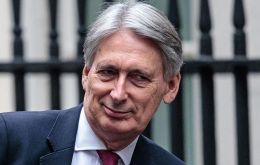
The idea of a second Brexit referendum is very likely to be put before Britain's parliament again although the government remains opposed to any new plebiscite, the British finance minister said on Friday.
-
Friday, April 12th 2019 - 10:04 UTC
Bank of England sees a “window of time” to forge a Brexit consensus

British politicians could now take some time to find a way forward on Brexit, Bank of England Governor Mark Carney said on Thursday, after Prime Minister Theresa May agreed on a delay of up to six months before leaving the European Union.
-
Wednesday, February 13th 2019 - 07:59 UTC
Bank of England urges Parliament to secure a good Brexit withdrawal deal and a smooth transition.

Bank of England governor Mark Carney has urged MPs to solve the Brexit impasse in a speech warning of growing threats to the global economy. He said a no-deal Brexit would create an “economic shock” at a time when China's economy is slowing and trade tensions are rising.
-
Friday, February 8th 2019 - 09:05 UTC
“Brexit fog”: Bank of England expects slowest growth since 2009

The Bank of England expects growth this year to be the slowest since 2009 when the economy was in recession. It is forecasting growth of 1.2% this year, down from its previous November forecast of 1.7%. The Bank said it had seen further evidence that businesses were being cautious in the run-up to Brexit, including evidence from its own survey of firms. As expected the Bank kept interest rates on hold at 0.75%.
-
Saturday, December 22nd 2018 - 05:37 UTC
Bank of England leaves interest rates on hold, but cautions about intensified Brexit uncertainties
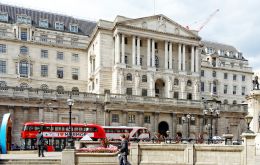
The Bank of England has kept interest rates on hold at 0.75% as it cautioned “intensified” Brexit uncertainties were slamming the brakes on UK growth. Policymakers on the Bank’s nine-strong Monetary Policy Committee (MPC) voted unanimously to keep rates unchanged in its last decision of 2018.
-
Friday, December 14th 2018 - 09:03 UTC
ECB confirms it's ending the massive bond-buying scheme
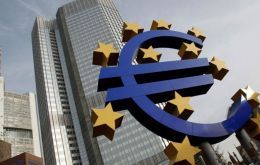
The European Central Bank has confirmed it is ending its huge net asset purchase program to stimulate the Eurozone economy this month. The ECB has stopped its bond-buying scheme, worth €30bn a month, despite a recent slowdown in the bloc's recovery.
-
Thursday, November 29th 2018 - 08:35 UTC
Bank of England warnings on a no-deal Brexit: recession and plunging pound
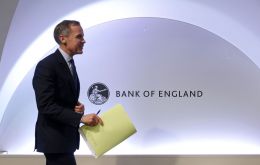
A no-deal Brexit could send the pound plunging and trigger a worse recession than the financial crisis, the Bank of England has warned. It said the UK economy could shrink by 8% in the immediate aftermath if there was no transition period, while house prices could fall by almost a third. The Bank of England also warned the pound could fall by a quarter.
-
Friday, November 2nd 2018 - 08:13 UTC
Bank of England leaves rates unchanged but warns on a no-deal Brexit scenario

Bank of England governor Mark Carney has warned interest rates could rise in the event of a no-deal Brexit if a cliff-edge withdrawal sends the pound into free fall. Mr. Carney said there are scenarios where policy “might need to be tightened in the event of a no deal, no transition Brexit”, should a plunge in the value of the pound cause inflation to surge and impact UK production.
-
Friday, October 19th 2018 - 06:27 UTC
“UK has done all it can”, to cushion a no-deal Brexit for the financial sector, says BoE

The United Kingdom has done “all it can” unilaterally to cushion the blow of a no-deal Brexit for banks and financial firms, a Bank of England deputy governor has said. Sir Jon Cunliffe seemed to place the ball firmly back in the EU’s court, after suggesting that British authorities had made significant efforts through the likes of banking stress tests and a temporary permissions regime to prepare the financial sector for a cliff-edge exit.
